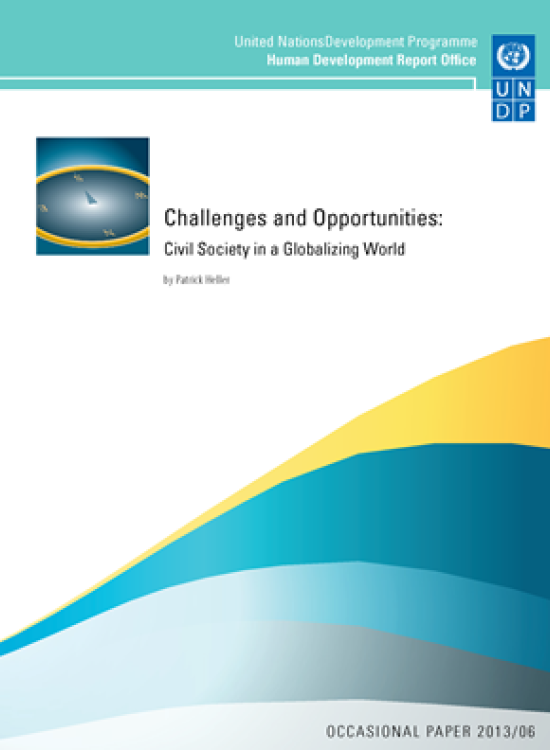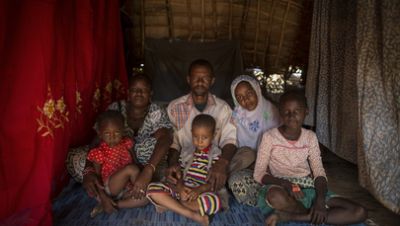Civil Society and Social Movements in a Globalizing World

Download Report by Language
Document
hdro1306heller.pdf
(863.82 KB)
Citation
Heller, Patrick. 2013. Civil Society and Social Movements in a Globalizing World. New York.
Civil Society and Social Movements in a Globalizing World
Posted on: January 01, 2013
Over the past three decades, the wide range of social, political, and economic changes that have accompanied globalization have radically transformed opportunities for progress in the developing world. Entire classes, sectors and nations have been lifted from poverty, representative democracy has spread, and new modes of communication have made us more aware of our shared fate. At the same time, globalization has produced new forms of social exclusion, new sources of insecurity and precariousness, and new security threats ranging from extremist movements to environmental degradation. Most significantly, globalization is transforming how power is organized and how legitimate power is authorized. The contours and substance of the nation-state, the traditional container of authorized decision-making, are being transformed. Nation-states are losing the regulatory control they have long enjoyed over the economy as well as the sovereign authority they have traditionally exerted over their citizens. Conceptions of nationhood, and with it, social integration, are being challenged by transnational flows of ideas, identities and information. The post-national constellation (Habermas 2001) poses fundamental questions around national integration, popular sovereignty, social protection and economic regulation.

